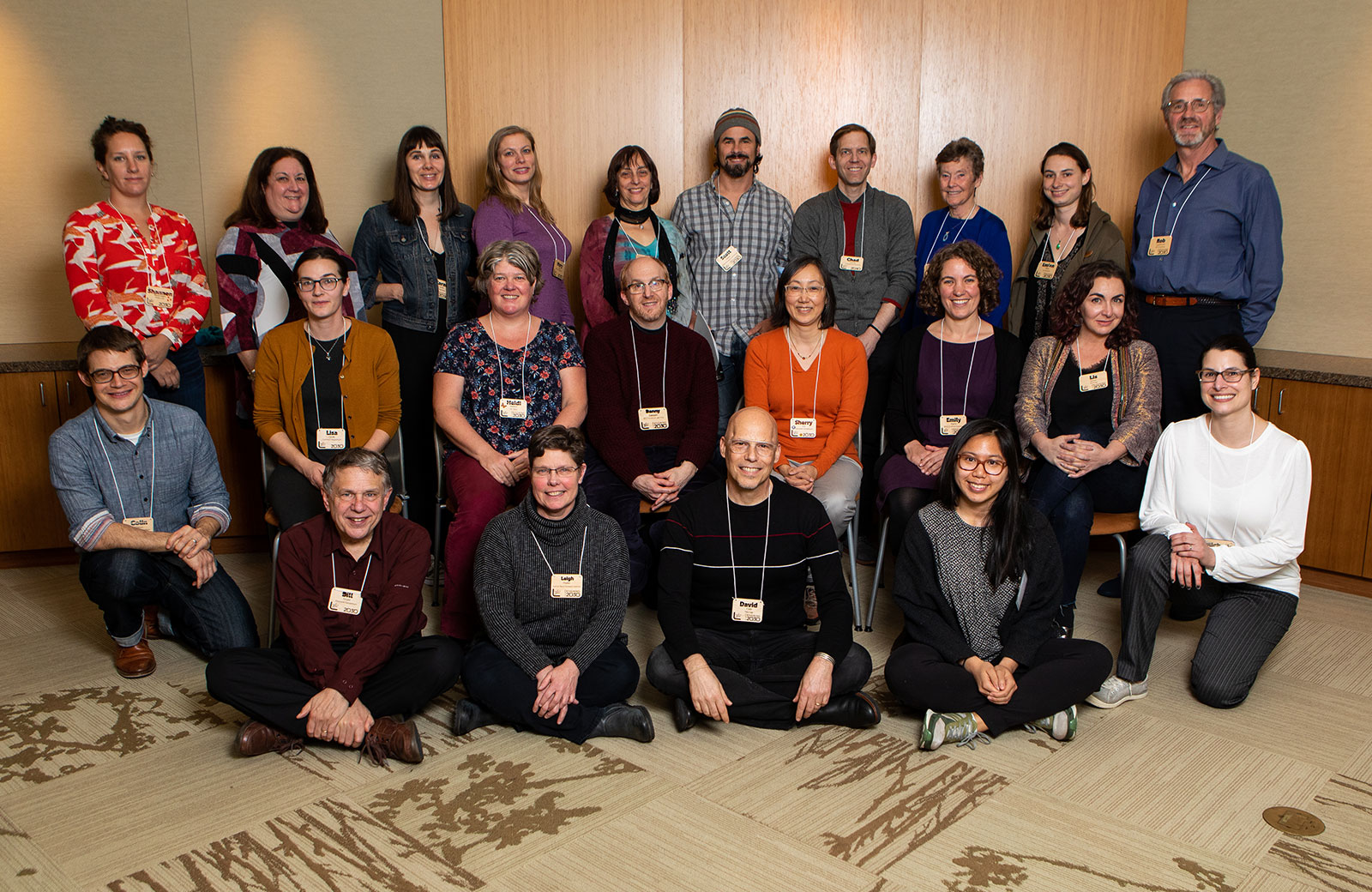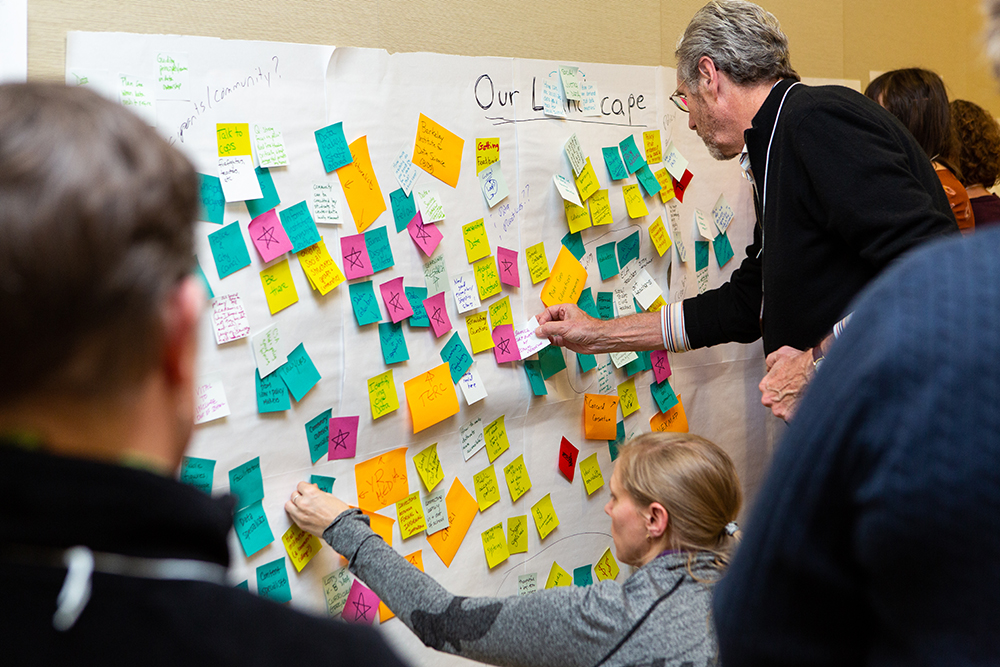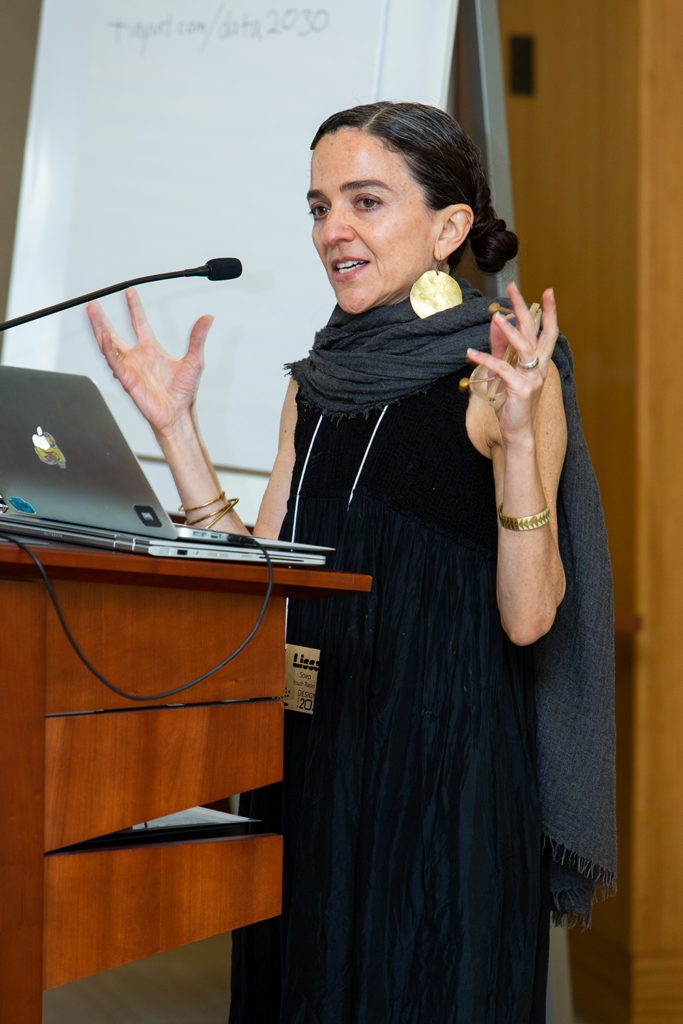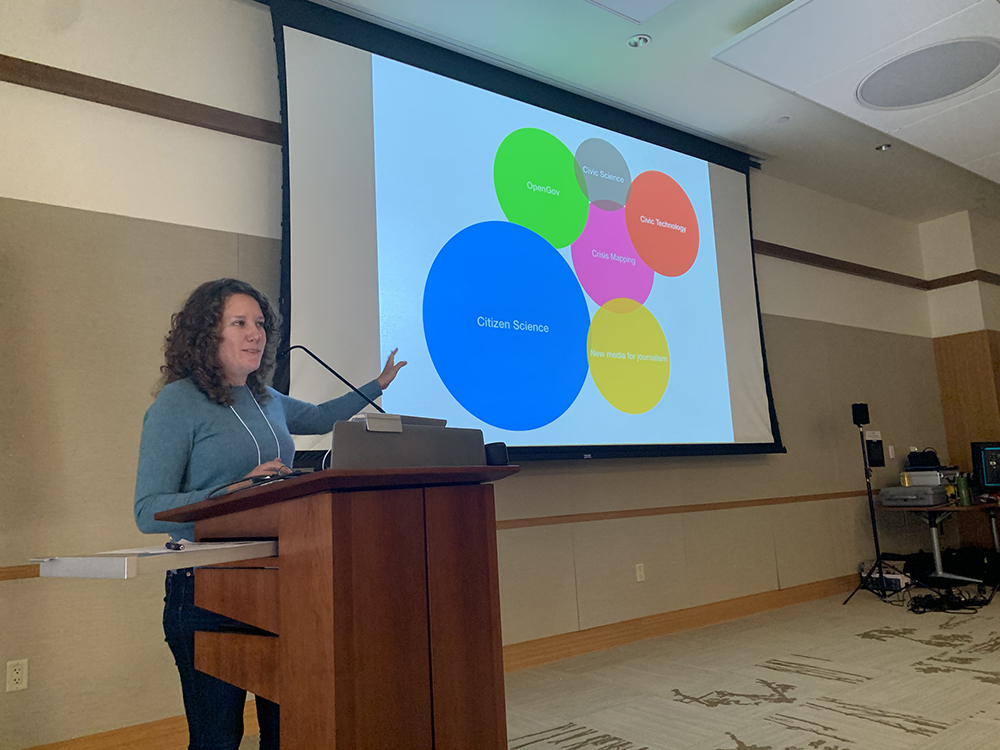From its founding in 1994, the Concord Consortium has always looked to the future, pushing boundaries and imagining the ways technology can expand and deepen STEM inquiry. Pioneers from the beginning, we continue to experiment with novel ideas, applying current and future technologies in unique ways, generating new collaborations, and leveraging the power of open educational resources.
With generous support from the Gordon and Betty Moore Foundation, we have hosted two seminal events to design the future of education. We’re setting our sights on the year 2030 with our Designing 2030 initiative and we’re pursuing an ambitious goal: use open data and innovative technologies to transform the way we teach and learn science and broaden participation by more learners.
 Data scientists, data literacy advocates, youth media researchers, citizen science specialists, and more gathered at the Designing 2030: Thinking & Doing with Data summit.
Data scientists, data literacy advocates, youth media researchers, citizen science specialists, and more gathered at the Designing 2030: Thinking & Doing with Data summit.
At our inaugural two-day summit in May 2018 in Oakland, California, 30 participants outlined potential educational technology opportunities and challenges faced by a diversity of students. Participants sketched and shared their visions for learners of the future and posted them on a large Wall of Inspiration. We were further inspired by talks by Bret Victor, Mimi Ito, Jeremy Roschelle, Adam Tobin, Colin Dixon, Judi Fusco, and Britte Cheng, as well as demonstrations, ideation activities, and thought-provoking discussions.
Discussions pointed to the importance of equity and the need to support, surround, and also stretch students in personally relevant and meaningful activity not only in school, but across everyday settings. Data literacy and data ownership were also important areas that rose to the top as we considered how parents, teachers, and learners need more help to understand, manage, and control whether data was derived from student assessments, artificial intelligence, or other data in the world. While dreaming big with our eyes on the horizon, we had our feet firmly planted on the ground as we turned ideas into blueprints for actions.
In January 2019, to dig deeper into the questions around data and data fluency, we reconvened a group of STEM professionals, curriculum designers, scientists, and educational researchers, and included participants with expertise in data science education, data literacy, and citizen science. We hosted Designing 2030: Thinking & Doing with Data at the Gordon and Betty Moore Foundation in Palo Alto, California. Twenty-three participants gathered for a day and a half to think specifically about the data-rich world of the future with the goal of designing learning experiences where students think, interact, and take action with data.
Leaders from the Concord Consortium, BSCS Science Learning, the Gulf of Maine Research Institute, TERC, National Geographic Education, Nexmap, Public Lab, iNaturalist, YR Media, UC Berkeley, UC Davis, and others dove deep to answer the questions:
What kinds of experiences should school-aged learners have with data? What must be done now and anticipated in the future in order to make these experiences possible?
We first engaged with software demonstrations, including CODAP, FieldScope, VitalSigns, Open Data Open Minds, iNaturalist, and open-source Internet-of-Things (IoT) hardware sensors from our InSPECT project. Colin Dixon facilitated a World Café format conversation in which participants reimagined data as a medium, data as making, and the afterlife of data, including “data violence.” This raised open questions about data reliability, data quality, and sources of data.
 Participants together build a landscape of key stakeholders, organizations, programs, and relationships needed to support data-fluent learners of the future.
Participants together build a landscape of key stakeholders, organizations, programs, and relationships needed to support data-fluent learners of the future.
Chad Dorsey gave an impassioned lightning talk, making the call to the field to form a Messy Data Coalition and arguing for “messy data” both as a pedagogical context for developing data fluency and as a reality of the future world. Putting data into context, he stunned the audience with the fact that a scant five years ago, there were more digital data bits than stars in the universe. And he argued that today’s fourth grader will need to be more than data literate, but fully data fluent to be able to navigate the world of future data tools and data experiences.
 Speaker Lissa Soep advocates for civic imagination and participation through youth-led media storytelling with data.
Speaker Lissa Soep advocates for civic imagination and participation through youth-led media storytelling with data.
 Shannon Dosemagen shares areas where the work of Public Lab is situated and having an impact.
Shannon Dosemagen shares areas where the work of Public Lab is situated and having an impact.
Two other invited speakers provided out-of-school perspectives on data. Growing up in the New Orleans area, Shannon Dosemagen from Public Lab shared her inspirational story of how the BP oil spill of 2010 prompted her to organize communities to participate in environmental monitoring and activism using low-cost DIY tools and technologies to collect and share data. Simple technologies like balloons and camera kites can capture images from invasive species to discharges of oil and other dispersants into the environment. She advocated for solving environmental problems by creating public data archives where multiple data sources can be knitted together to grow more complete datasets where the community can take further action. Public Lab hosts many of these open tools and archives.
And Lissa Soep from YR Media (formerly Youth Radio) described social media contexts for youth learning and empowerment in data-driven storytelling and for understanding technologies like AI. She argued that teaching students fluency with data, coding, and computational thinking should be for “critical computational imagination,” a term she and her colleague Clifford Lee together coined to describe the need to understand the relationship between data and power. Data exploration contexts can be used to prompt teens and young adults to explore topics like non-binary gender identities and how algorithms are trained to rate how danceable songs are on media sites like Spotify.
Our Designing 2030 initiative will continue to facilitate deep conversations and connections to build synergies across different groups and organizations. We are also researching ways to support data fluency and designing tools and applications to support open data exploration, platform interoperability, and educational technologies. Our goal is to support young learners in engaging in meaningful STEM learning experiences and grow into informed community participants and stewards of the future.
For more information about Designing 2030, contact Sherry Hsi.